This is how Melinda Gates is fighting for family planning services
And it's about to make a big difference
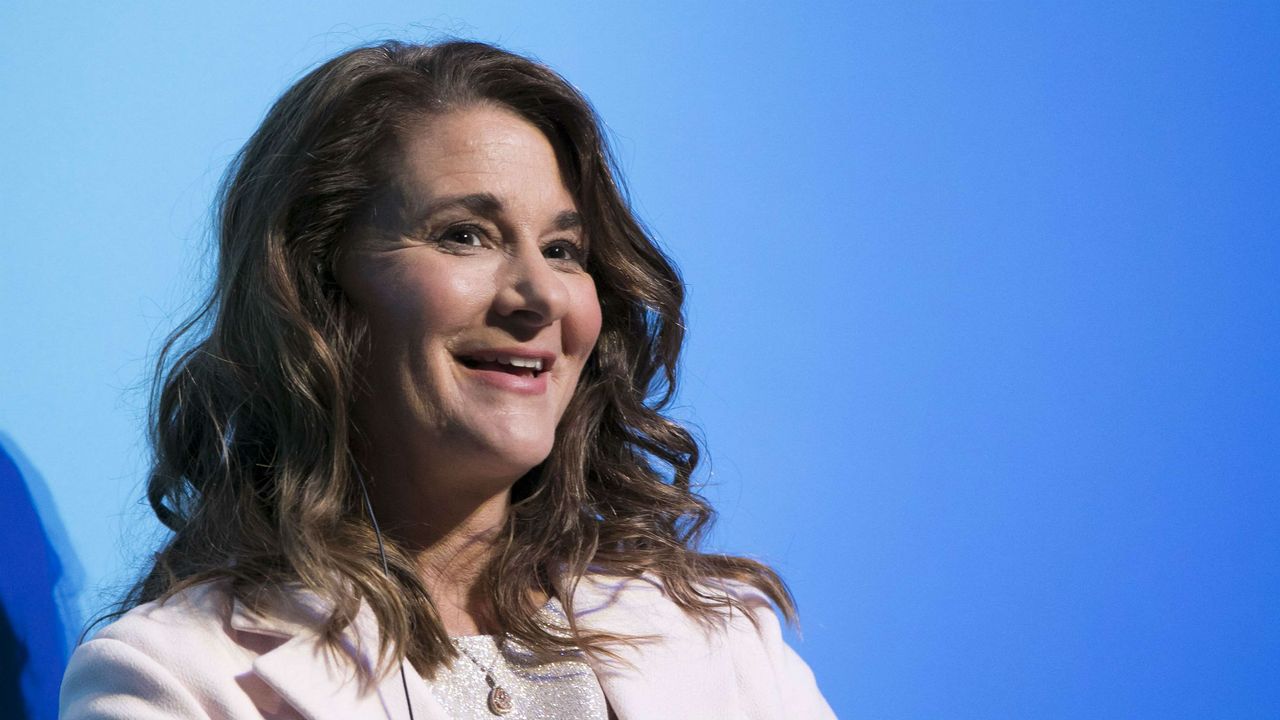

And it's about to make a big difference
Melinda Gates announced today at The Global Family Planning Summit in London, that the Bill & Melinda Gates Foundation will increase its funding for family planning by 60%, providing an extra $375m over the next four years. About $250m of this money will be used to fund services for teenagers.
Her move is a welcome initiative following President Donald Trump's reinstatement earlier this year of the 'the global gag rule’ which prohibits U.S. funding to international NGOs if they advise on or provide abortion services as part of their wider family planning and contraception services. In May this year, Trump also decided not allocate any funding for international family planning in his proposed budget.
At the summit in London, Gates spoke openly of the recent moves by the US: 'This is a difficult political climate for family planning,' she said. 'I’m deeply troubled, as I’m sure you are, by the Trump administration’s proposed budget cuts.'
The US is the largest donor for family planning, giving more than $600m this year alone. So cutting these funds will leave a huge hole in the money available. In real terms this means less money to fund family planning services that give women control over when and if they have children. It means huge cuts to basic contraception services for over-populated communities across the world who cannot afford larger families, a lack of abortion services for rape victims of war and abuse, and more women than ever dropping out of education to look after children. Tragically, every day 830 women die from childbirth or pregnancy around the world. Almost all of these deaths are preventable.
However, this funding alone cannot hope to close the gap left by Trump's actions, which is why the Bill & Melinda Gates Foundation is joining forces with the UK's Department for International Development, and the UN Population Fund to provide modern, voluntary family planning to women in the world's poorest countries across Africa and Asia. The UK has pledged to provide an average of £225 million per year until 2022.
Priti Patel, Secretary of State for International Development, will announce the policy at today's summit, which hopes to save the lives of over 6,000 women - one every 90 minutes - by preventing maternal deaths.
Marie Claire Newsletter
Celebrity news, beauty, fashion advice, and fascinating features, delivered straight to your inbox!
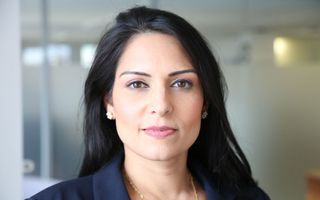
Priti Patel told Marie Claire: 'This new UK aid support will provide 20 million women with voluntary contraception, change the lives of 6 million women by allowing them to avoid unintended pregnancies and prevent the trauma of 75,000 still births. We know that when women are in control of their bodies, they can make decisions about their own lives and futures, stay in education, in jobs, and end the cycle of poverty, and the way to do that is by giving them access to contraception. We are speaking about women and girls in some of the poorest parts of the world where awareness raising is difficult - perhaps because they live in rural areas where supply is difficult, or in male-dominated societies where contraception is not something that is spoken about. Global advocacy - being a voice for women and girls in these parts of the world is one way to support our campaign. Marie Claire readers have been hugely generous in supporting and empowering women by shining a spotlight on these issues.'
Pregnancy not only puts women's lives at risk - it can affect their education and future prospects too. Sophie grew up in Uganda. By the time she was 13, ten of her classmates were already pregnant. Her school gave all female students pregnancy tests regularly. Anyone who received a positive result would be expelled. Sophie is now working with Plan International to promote safe sex and reproduction health education to her peers.
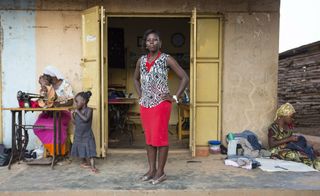
Sophie told Marie Claire: 'In Uganda, the social norms and perceptions around pregnancy prevent girls from getting an education and employment - there is a belief that if a girl is pregnant, she is no longer a girl but a mother. Schools say they do not educate mothers. Sexuality is seen as a private issue - growing up, I received no sex education at all. Some girls still believe that if they bathe in Coca-Cola after sex they won't get pregnant, or if they jump up and down after sex they won't get pregnant. That's why educating women, changing perceptions and providing access to contraception is so important.'
Help raise awareness with the hashtag #HerFuture on social media. To find out more about the summit visit summit2017.familyplanning2020.org
-
 Like everyone else, I'm obsessed with these Adidas cow print trainers
Like everyone else, I'm obsessed with these Adidas cow print trainersGet them before they're gone, and where to find alternatives
By Rebecca Jane Hill
-
 Introducing the esteemed Marie Claire UK Hair Awards 2025 judging panel
Introducing the esteemed Marie Claire UK Hair Awards 2025 judging panelMeet the leading experts crowning this year's hair heroes
By Lollie King
-
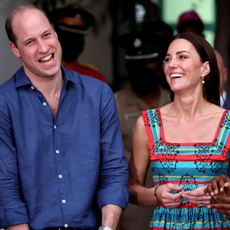 Here's exactly what William and Kate were doing instead of the BAFTAs
Here's exactly what William and Kate were doing instead of the BAFTAsBy Iris Goldsztajn
-
 Northern Irish women gain access to free abortion on the NHS
Northern Irish women gain access to free abortion on the NHSStella Creasy MP led the campaign for an amendment in the law ahead of a government debate
By Rosie Benson
-
 The reality of life as a woman in the shadow of the DUP
The reality of life as a woman in the shadow of the DUPJust 24 hours after a DUP-Conservative Alliance was put forward by Theresa May, there are reports that the Democratic Unionist Party could push for amendments to UK abortion laws as part of their support for May's flailing government. CAITLIN DE JODE, who grew up with the reality of this deeply conservative party in Ireland reveals why Theresa May's new partnership is deeply worrying for all of us. Here's her account.
By Andrea Thompson
-
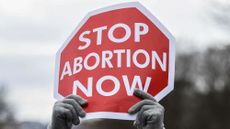 Meet the pro-choice crusader changing the lives of women
Meet the pro-choice crusader changing the lives of womenMara Clarke founded the Abortion Support Network, which provides non-judgemental advice, financial assistance and accommodation to women travelling from Ireland and the Isle of Man to access safe terminations. Marie Claire's Hilal Seven hears her story
By Marie Claire
-
 Some men have just said the *stupidest* thing about birth control
Some men have just said the *stupidest* thing about birth controlAnd people on Twitter have responded accordingly
By Delphine Chui
-
 Accessing the morning after pill in the UK: extortionate costs and unnecessary consultations
Accessing the morning after pill in the UK: extortionate costs and unnecessary consultations'It’s taking people who need an emergency treatment and profiteering from that'
By Marie Claire
-
 Are you joining the women's strike today?
Are you joining the women's strike today?Here's what you should know first
By Andrea Thompson
-
 How being a woman has changed over 100 years
How being a woman has changed over 100 yearsWomen have come a long way since 1917 -when we couldn't vote, get legal protection from marital rape, or initiative divorce
By Rosie Benson
-
 28 empowering quotes from women who kick ass
28 empowering quotes from women who kick assWho run the world? Girls. And these women are our inspiration...
By Jenny Proudfoot